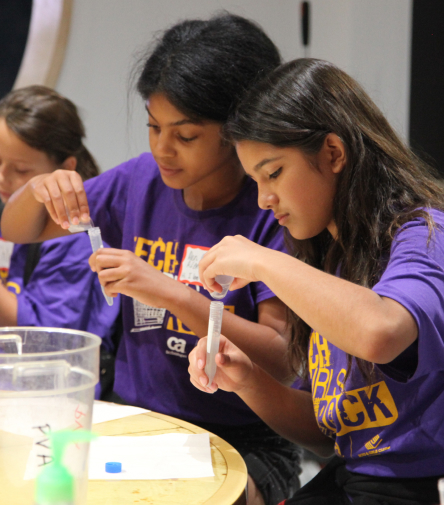Work-Based Learning
Tools to provide youth with real-world work experience
Jump to Resources ↓
Providing transferable skills and valuable training necessary for transitioning into a career
Work-based learning is defined as opportunities that occur in a workplace.
This is done by providing structured learning experiences for youth through exposure to a range of work responsibilities over time. To prepare teens for success in the workplace, it is essential to provide practical work opportunities for them to sharpen newly gained skills. Such experiences will prepare young people with transferable skills and valuable training to transition into careers of their own. These experiences can include service-learning, first jobs, in-Club internships, external internships with companies and pre-apprenticeships.
This is the part of our workforce framework connects learning and gaining work experience in a real-world setting.
Research by Jobs for the Future notes that the structures of work-based learning models should reflect their core purpose, but approaches may vary. Working with community and employer partners can help to broaden this experience for young people. While this requires significant Club effort and resources – such as individual case management and expanded safety procedures –the impact on young people can be profound.
Strategies and practices collected from Clubs offer work-based learning experiences for teens in the work environment
Tools
Samples
Strategies & Practices
1
Include opportunities for service-learning project events, in both the Club and community, in your program calendar.
2
Offer opportunities for teens to serve as volunteer mentors, homework helpers, activity leaders or tutors for younger Club youth.
3
Prepare teens to pursue their entrepreneurial interests by encouraging them to start and run Club-based small businesses, such as a Club concession stand.
4
Implement a counselor-in-training program to recruit and prepare Club teens to serve as summer camp counselors.
5
Ask Club board members or alumni to support teen work experiences by serving as mentors, venture capitalists, or by making connections with other potential workforce development donors or partners in the community.
6
Design a structured and sequenced program including career exploration, employability skills development, and in-Club work experiences for teens to complete before applying for external first-job placements or Club program staff positions (once they become Club alumni).
7
Assign staff to provide guidance and case management for working teens; develop job placements with local employers; and manage partnerships with businesses, workforce development boards, and technical schools and social services providers.
8
Facilitate internship and pre-apprenticeship placements with local agencies or companies based on teens’ career interests.
9
Identify funding from federal, state and local government, and corporate sources, to subsidize stipends, wages, and other supports for teens in Club or external first-job and internship placements.
10
Support working teens by providing transportation or covering public transportation costs; maintaining a closet with appropriate job interview and work clothes; covering costs for certification exam fees, tools, driver’s license fees; and making referrals to other social services agencies.